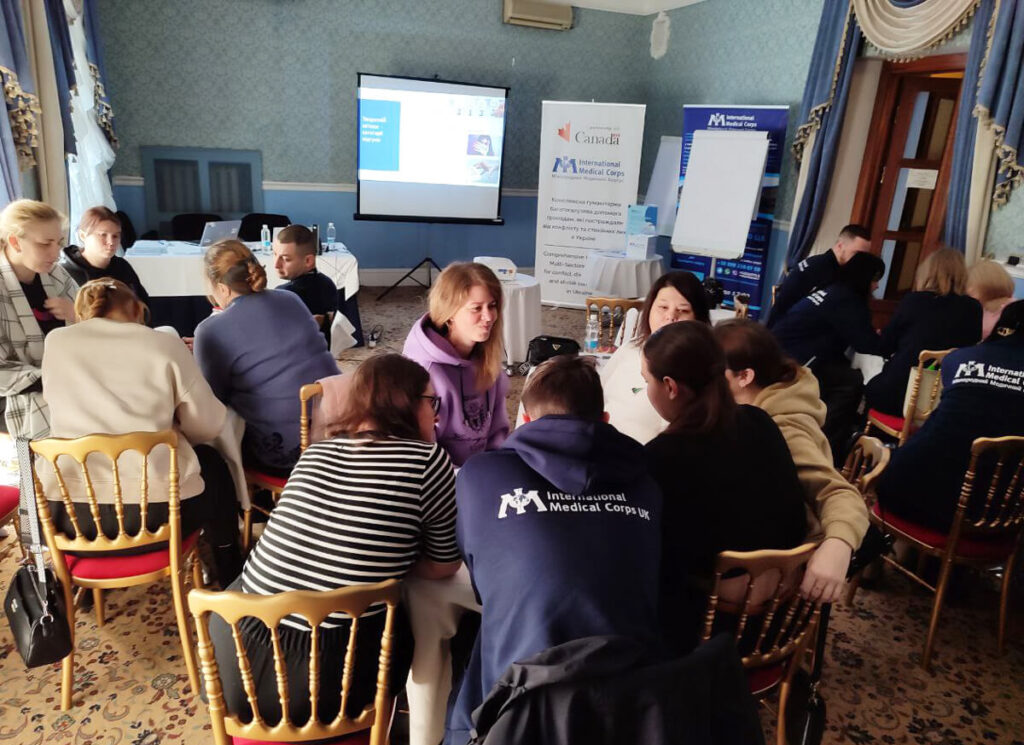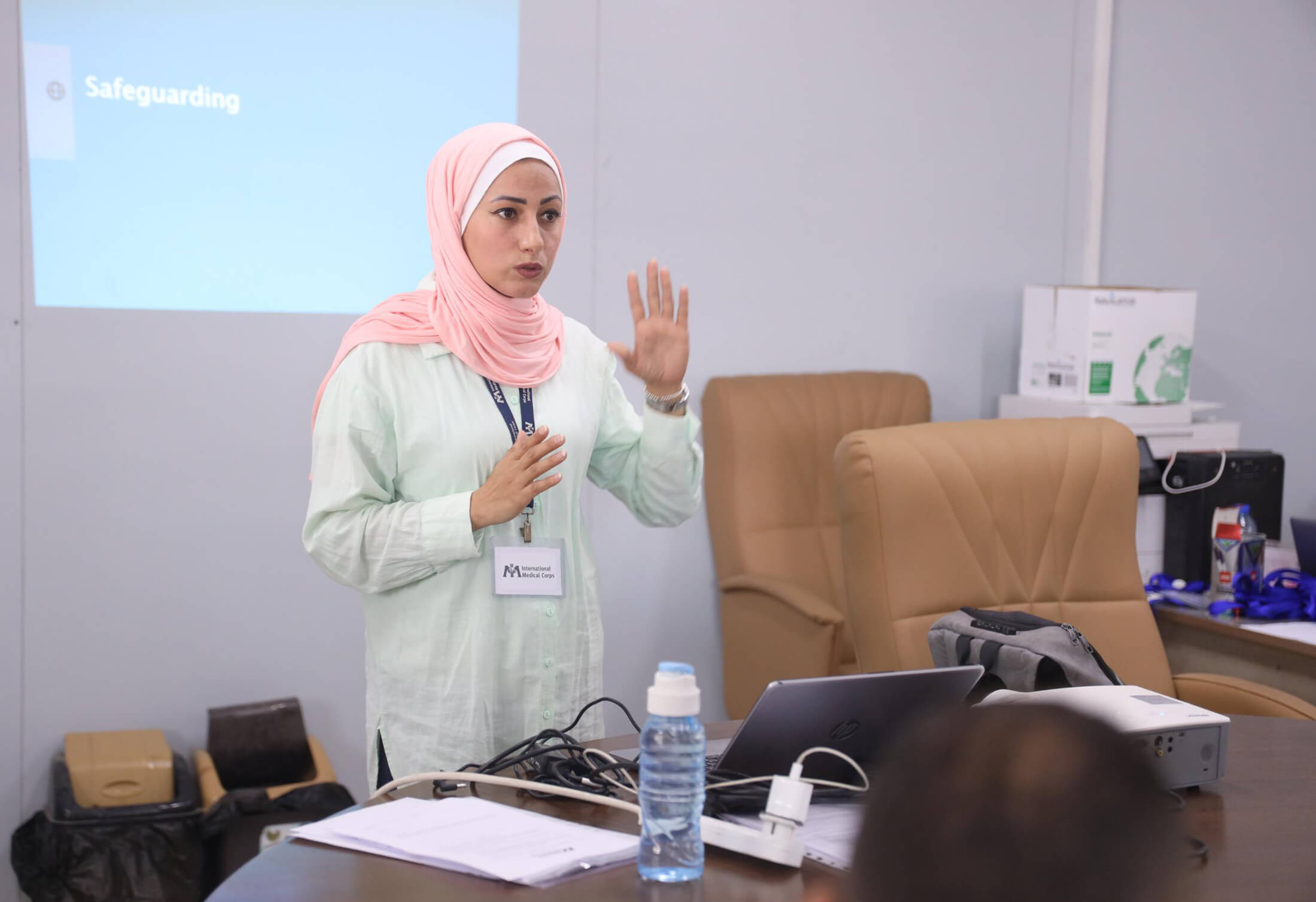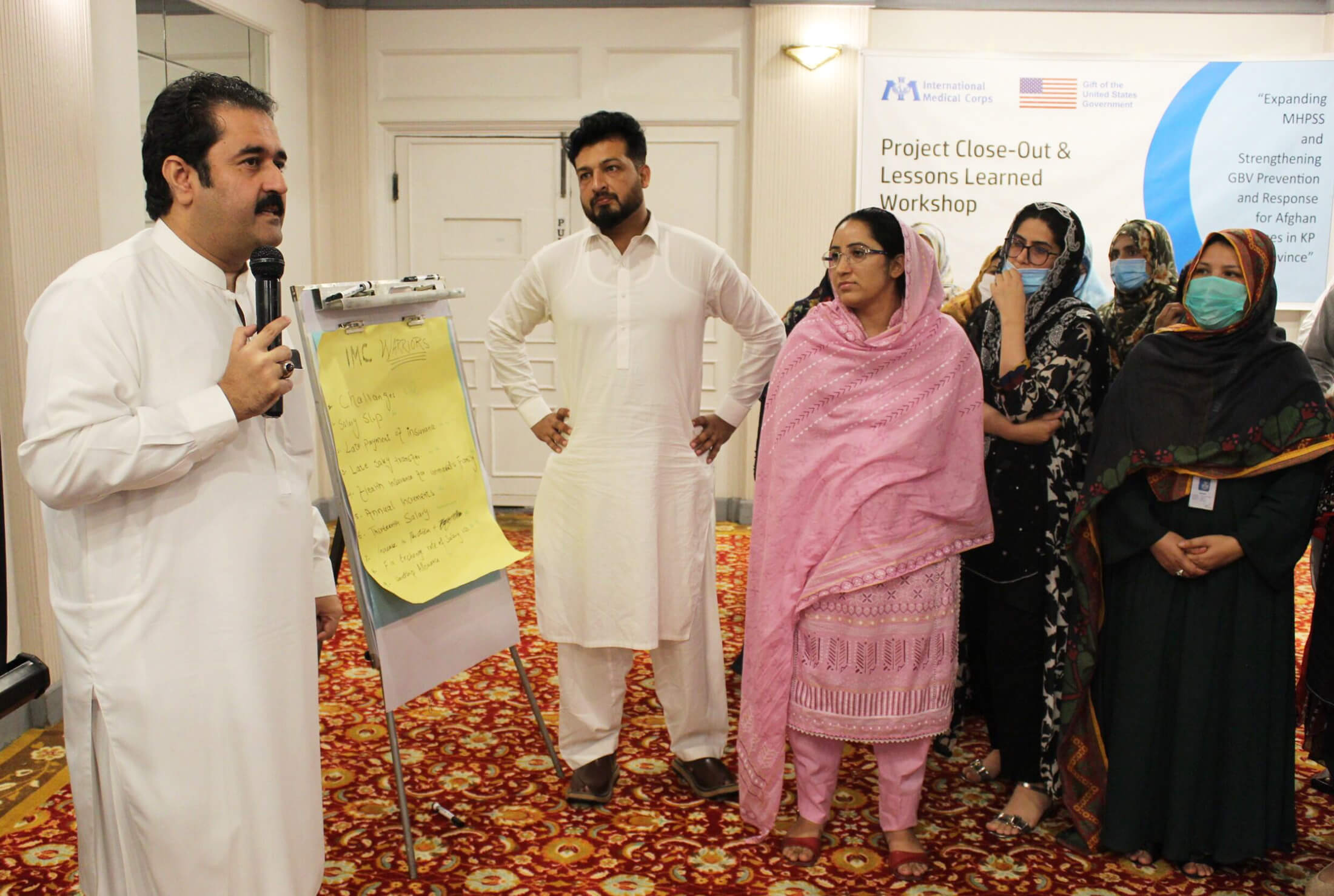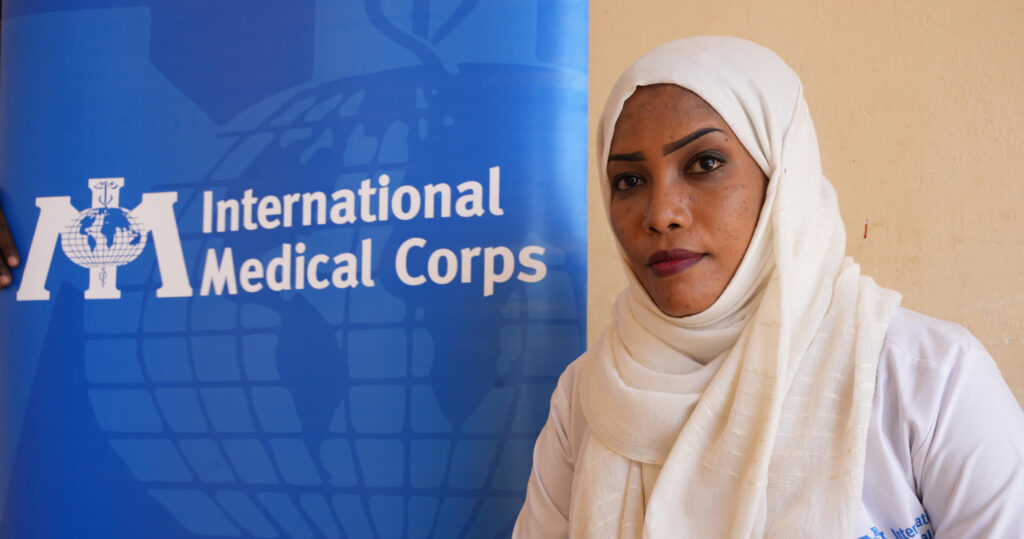International Medical Corps puts its commitment to safeguarding—making sure that our staff and programmes do no harm to the people with whom we work—into action in each of our country missions through Safeguarding Focal Points (SFPs), staff members who play a key role in helping to create safe and accountable environments.
Seen as an industry-wide best practice for protection from and the prevention of sexual exploitation and abuse (PSEA), SFPs play a key role in implementing International Medical Corps’ Safeguarding Policy and procedures in each of our missions. There is at least one SFP in every mission, but the number of SFPs in a country depends on the size of the mission and its context. Every Country Director is responsible for appointing SFPs—who typically incorporate these duties into their assigned roles at the organisation.
“Having SFPs is a really egalitarian model,” explains Angela Wiens, Senior Director of Safe and Accountable Programming. “It shows that anyone in the organisation can work on safeguarding. They help illustrate the principle that safeguarding is everyone’s responsibility.”
After SFPs are appointed, the Safeguarding Unit at headquarters provides them with ongoing support. Safe and Accountable Programming Specialist Suzanne Youngner enrols SFPs in an orientation on WeLearn before walking each SFP through a four-module training course (also on WeLearn) that focuses on four topics: awareness, prevention, reporting and responding.

One of the SFPs’ responsibilities is to monitor and update International Medical Corps’ Safe, Accountable and Effective Programming Action Plan, which has nine priority actions that country programs need to take to implement our Safeguarding Policy and procedures.
- Safeguarding Policy and Code of Conduct & Ethics: Making sure these policies are widely distributed, accessible and understood
- Safeguarding Focal Points: Making sure SFPs are identified, trained and active
- Survivor support: Ensuring that designated staff are identified to support survivors of safeguarding violations, and that survivor-assistance referral pathways are in place in each project site
- Protection risk assessment: Ensuring that an assessment of protection risks is conducted during programme design and implementation
- MAST completion: Making sure staff members have taken the Mandatory All-Staff Training on safeguarding and a respectful workplace
- Safe recruitment: Ensuring that safeguarding screening processes are in place for all new hires
- Reporting procedures: Making sure that reporting procedures for safeguarding concerns and violations are publicly available and readily visible at all worksites, in addition to ensuring systematic engagement with groups of people who are excluded from power and decision-making processes
- Subrecipient/implementing partner safeguarding requirements: Ensuring that our subrecipients and implementing partners receive our Safeguarding Policy and Code of Conduct & Ethics requirements, in addition to making sure all new partners are fully assessed on safeguarding capacity
- PSEA networks: Keeping International Medical Corps active in PSEA networks within countries
“SFPs are the linchpins of our safeguarding initiatives at country level,” Suzanne says. “Their work—receiving reports, making sure that safeguarding procedures are in place and generally building a safeguarding culture that encourages good conduct by their colleagues—ensures that International Medical Corps maintains the good reputation it has today for our safeguarding practices.”
Meet Our SFPs
Today, International Medical Corps has nearly 130 SFPs working around the world, including full-time safeguarding officers.
As our Safeguarding Officer in Gaza, Reem Al-Dwaik works with a team of five SFPs. Before moving into safeguarding in October 2024, Reem supervised one of our women’s and girls’ safe spaces. Her strong interest and experience in the protection sector prompted her to take a specialised safeguarding training course before she saw the Safeguarding Officer role advertised on our website and quickly applied.

Reem says she is most interested in raising awareness of safeguarding, especially for staff members.
“We have to raise our voices and talk about our ethics. Talking about policies is so important for building a good culture,” she says.
Waqar Hussain is the Country HR Lead in Pakistan, responsible for recruiting new staff members, providing orientations and training sessions, implementing HR policies and procedures, and protecting staff members against bullying and harassment. He played a vital role in incorporating safeguarding into recruitment guidelines and agreements to protect communities from physical and emotional harm, in line with our organisation’s zero-tolerance policy for inaction in response to safeguarding violations. He has also functioned as one of the mission’s SFPs for about 10 years.

“I’m proud that I’m part of this organisation and part of the humanitarian network, which is working to protect community members,” Waqar says. “The communities we serve are affected by conflict or disaster, and they are already vulnerable, so I am helping to protect them from further vulnerabilities.
“Safeguarding is not a one-time initiative—it is a continuous pledge to challenge harmful behaviours and empower staff and communities to speak up,” he continues. “I invite all humanitarian workers to join in making safeguarding a shared responsibility.”
